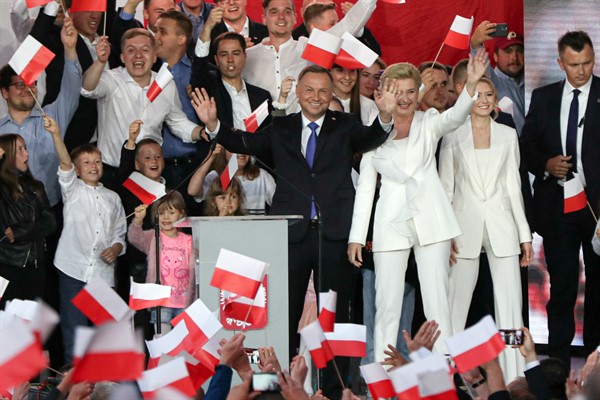Polish President Andrzej Duda narrowly won a second term in a hotly contested runoff election earlier this month, opening the door for the ruling right-wing populist Law and Justice party, known as PiS for its Polish initials, to continue cementing its power.
But the vote, which was postponed from May due to the coronavirus pandemic, also illustrated the depth of the political divide in Polish society. On one side, a largely rural and older cohort of conservative voters handed Duda a narrow victory with 51 percent. His challenger, Warsaw mayor Rafal Trzaskowski, took the remaining 49 percent, mostly from metropolitan areas.
The PiS-backed Duda is unlikely to help heal this rural-urban rift. Facing an unexpectedly strong challenge from Trzaskowski, Duda ran with a bitter message based on the same culture wars that have been a hallmark of the party’s rule. The Organization for Security and Cooperation in Europe, which monitored the election, said in a statement that Duda’s campaign was “marked by homophobic, xenophobic and anti-Semitic rhetoric.” Duda also burnished his credentials with a visit to U.S. President Donald Trump, who praised his Polish counterpart at a White House meeting just weeks ahead of the vote.

